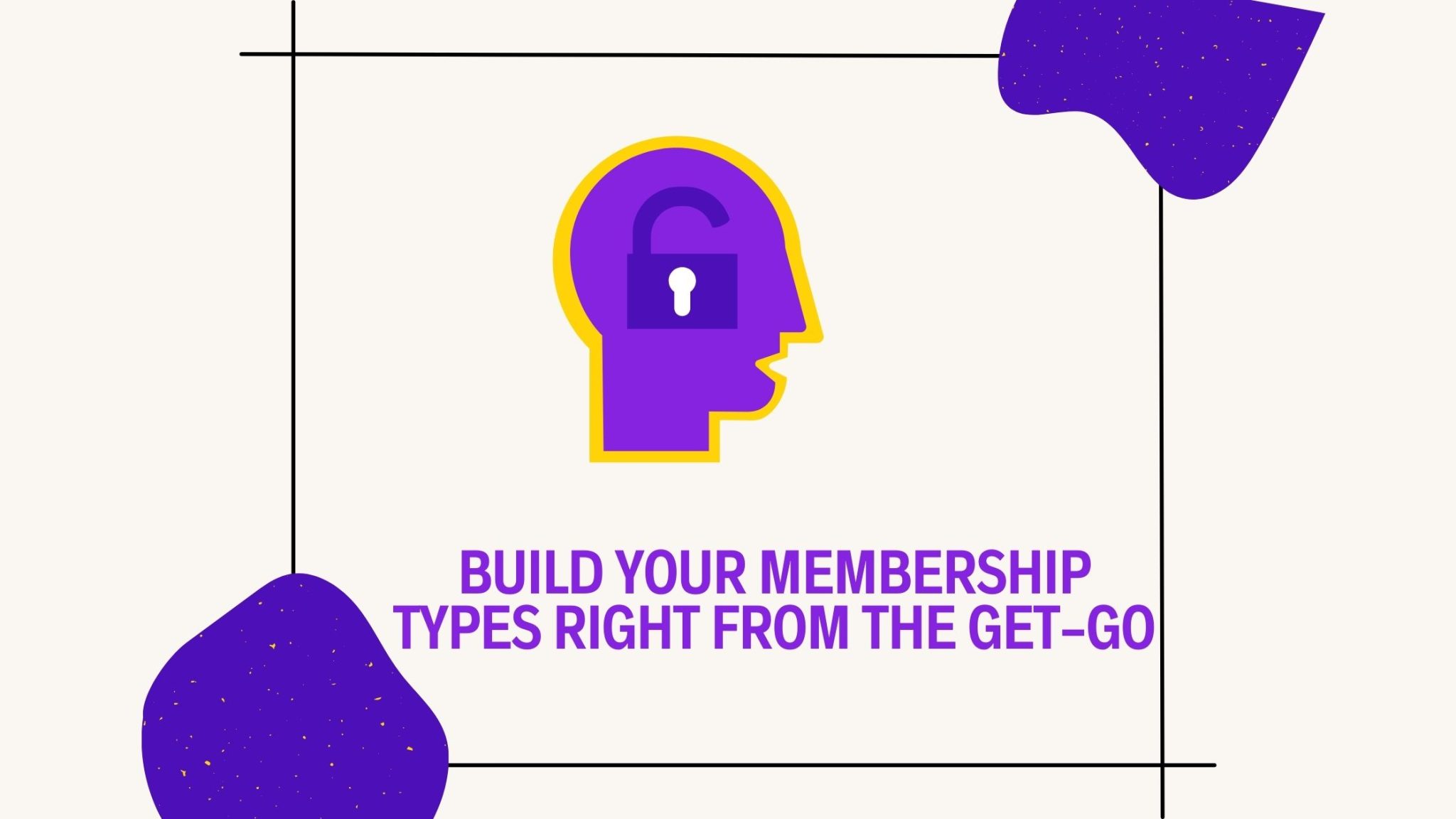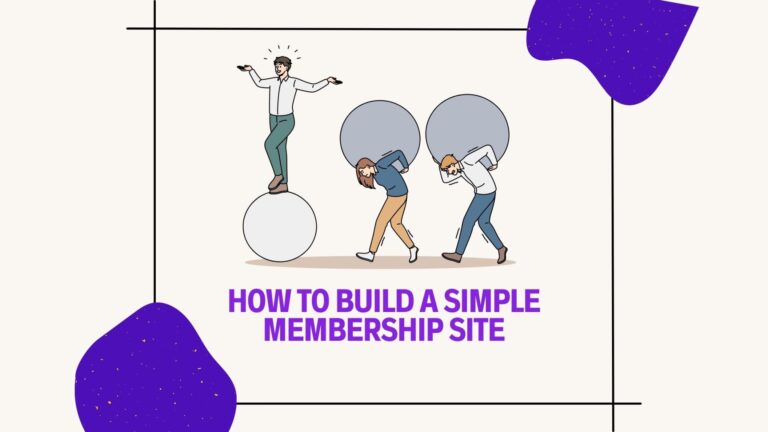Trying to figure out the different membership types can feel like playing a board game without knowing its rules. Despite what everyone’s been explaining to you, and despite all the YouTube videos you’ve watched, something’s…missing.
And that “something” is usually a rulebook on how you can use the different elements of the “game” (in this case, “membership type”) to build a solid strategy, gain ground, and leave your competition in the rearview.
So, what are the main types of membership sites? What are they good for? And how to choose one that fits your purpose?
Let’s dig into this.
First Things First: Levels, Programs, and Types
Communities are nothing new — we’ve been building them since pre-historic times, and they’ve had an instrumental role in our evolution. They helped us stay safe, learn from each other, create families, and, eventually, build entire societies and civilizations.
Our ancestors may have gathered around the fire to build a community, but things are slightly different these days. The concept’s still the same: bring multiple like-minded people together, and the power of many will have its word. In pre-internet times, communities were built around shared interests, physical spaces, rituals, and values.
The internet has made it a million times easier to build a community — there is, after all, more than 5.7 billion of us, online. You could have the most remote interest — and there’s a chance there’s at least a thousand of people you can share it with, through the power of screens, internet connections, and, well, passion.

Because the internet’s relatively new (and membership sites, as we know them today, are even fresher in the game), there are still some grey areas to figure out. And in terms of membership types, one of the most common struggles is understanding the difference between levels, programs, and types.
It’s easy to see why they might be confusing. They sound like they’re more or less the same thing, so, naturally, you’ll see a lot of people use them interchangeably. Let’s take a look at what the Oxford Dictionary tells us about these terms, though:
- Level: “an amount or degree of something, especially within a range of amounts or degrees”.
- Program: “a set of activities or procedures to be followed in order to achieve something.”
- Type: “a category of people or things having similar characteristics”.
That’s an important distinction. To put it more simply, a type is usually a category of memberships, like “free,” “premium,” or “lifetime.” A level defines various levels within that membership type. And a program is a set of activities (or benefits) for each particular level.
So, for example, you could have a free membership level and a paid membership level with two membership types — basic and premium. In this program, program would refer to the actual business model behind your membership site.
To circle back to definitions a bit, “membership types” are the categories of memberships you offer to your customers. If we are to build a hierarchy of the three terms, the “program” is the term sitting at the highest level (you have a subscription-based membership site), “level” is the middle layer (you offer free and paid levels of membership), and “type” is the lowest layer (your paid memberships come in two forms: basic and premium, each with its own unique offering.)
Membership Types, Explained in Detail
Imagine membership types are Ikea components — but instead of being limited to a given piece of furniture, they can be mixed and matched to create virtually anything you want. The reason membership types are so important is because that’s where the “core” of your entire membership site offering lies.
Build good membership types, and people will line up to pay for what you offer. Build confusing membership types that don’t underline the actual benefit of joining your community, and people will click the “X” button faster than you can say “membership site.”
In short, membership types are the basis of your online community. They provide structure and a way to categorize members and offer them certain access levels. If done correctly, they can help you create a thriving community that provides value to all its members, from the most basic to the most advanced ones.
TL; DR: Membership types are one of the key components for launching a successful membership site. You better not skip the step where you build them.
How to Build a Membership Type
To create anything, you have to know your basic elements, inside and out. For instance, you can’t build a house if you don’t know how bricks, nails, and wood fit together. The same applies to membership types. So, instead of copy-pasting membership types from other sites, build your own, to match your business, audience, and revenue strategy.
Here are the fundamental elements of all membership types:

Benefits
The “benefits” part is essential to building membership types that truly satisfy your members. This is the part that makes everything worth it. What are you offering them? How will they benefit by signing up to your membership site? Why would they join it, what, more specifically, is in it for them if they sign up (even if just for a free package?)
Think of it as rewards they collect over time while being part of your community. For example, access to exclusive content, discounts on products, and invitations to webinars or exclusive events.
For example, if you are running a subscription-based cooking membership site, all tiers of your memberships should include something extra that will make them feel valued and appreciated. One tier could offer a free recipe e-book every month, and the other could offer free supplies for one of those recipes, or even access to exclusive cooking classes, recipes for a specific type of diet, or one-on-one consultations with you.
Criteria
The “criteria” element of a membership type refers to the conditions that must be met for a person to become eligible for it. These can vary from level to level, and a good membership type should include criteria that are detailed enough to guarantee the best and most relevant members to your site.
For example, if a free membership type requires users to fill out a survey, the paid membership type could require them to provide additional information, such as their income level or educational background. This helps you target the right kind of people for your membership tiers.
Name
Membership types names are important because they have to be comprehensive, compelling, and persuasive. These are the “membership package names” that will appear on your site.
They should be short and easy to remember, but they should also include words that describe what members get in return. For example, Premium Membership or Gold Membership can be attractive names, but they don’t really explain what members will get when they sign up, especially if you’ve chosen membership type criteria that’s a bit more untraditional.
Price
Last, but not least, you should also consider the price for all membership types. This is up to you and your budget, but the price should match the benefits. For example, if one tier offers a free eBook, the other one should offer something more valuable, such as a free consultation or access to exclusive content.
Furthermore, make sure you run some market research to see different pricing models and how they apply to your specific business. If you have competition in the same niche as you, make sure your membership pricing offers a good cost-to-quality/ benefit ratio.

How to Package Your Membership Types
Once you’ve determined the main elements of your membership types, it’s time to wrap them up neatly — and present them to the world. Some of the most important tips to remember when it comes to your membership packages include the following:
- Create a clear and concise value proposition for each package
- Make sure the benefits are relevant to your members.
- Offer exclusive content and rewards that are valuable.
- Make sure the criteria is reasonable and relevant.
- Name your packages in an attractive, creative way.
Conclusion
Membership sites may not be the greatest thing since sliced bread — but they sure are one of the top 5 best things going on in the digital world right now. As more and more people want to back away from social media noise and focus on true learning, networking, and community, membership sites are gaining more traction.
Knowing how to build membership types that convey your unique selling proposition, attract, and convert is key to the success of your membership site. Just make sure that you include all the necessary elements such as criteria, benefits, and pricing, when creating your packages to ensure the best outcome.
You May Also Like
How to Choose a Membership Site Platform for Your Online Community
How to Create Paid Member Subscriptions on WordPress
How to Create a Membership Dashboard: Use Cases and Best Practices




